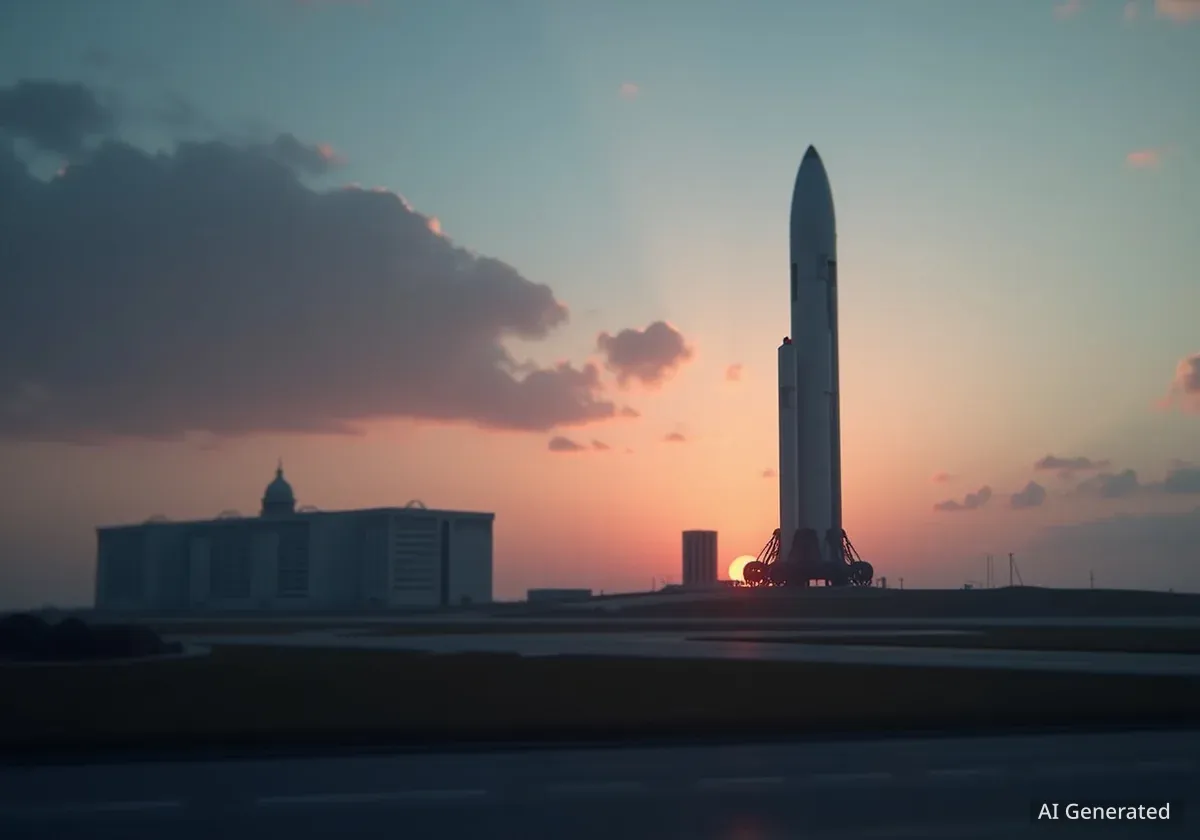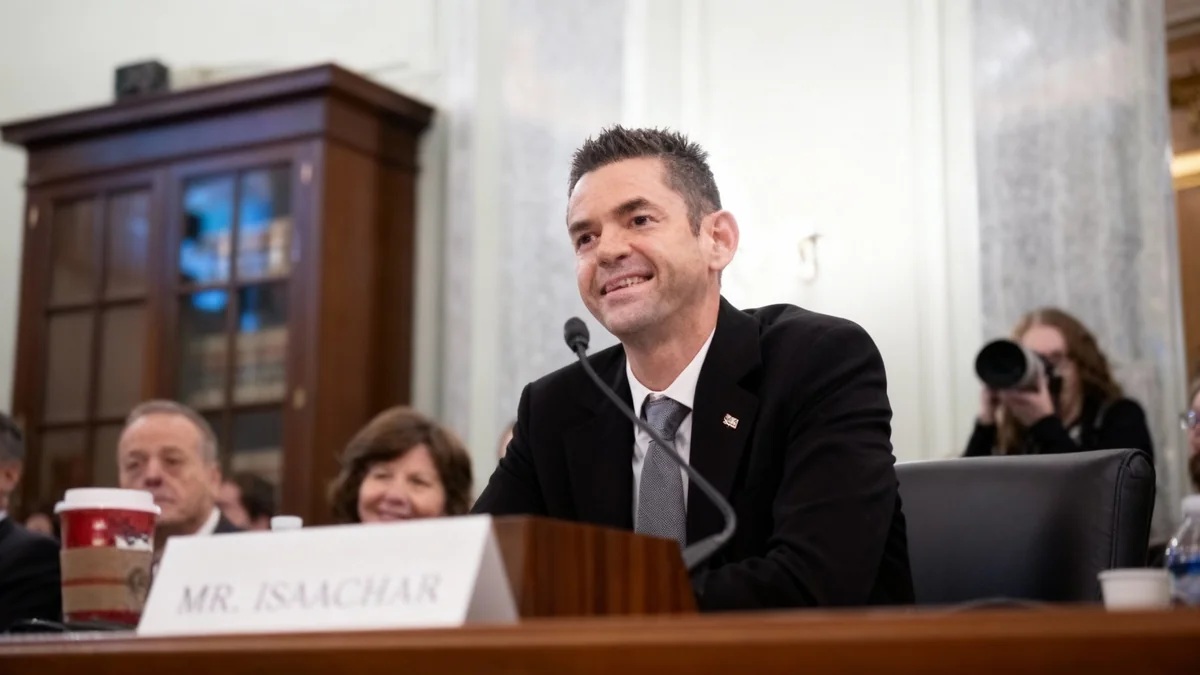A new legislative proposal aims to provide dedicated federal funding to spaceports across the United States. The bill, known as the SPACEPORT Act, was reintroduced by Representative Dale Strong of Alabama as the nation prepares for an increase in space transportation activities.
The move coincides with the recent confirmation that the U.S. Space Command headquarters will be located in Huntsville, Alabama, a decision that has significant implications for the region's role in national security and space exploration.
Key Takeaways
- Representative Dale Strong has reintroduced the SPACEPORT Act to secure federal funding for U.S. spaceports.
- The bill is designed to support growing demands from commercial, civil, and national security space sectors.
- The legislation follows the decision to move the U.S. Space Command headquarters to Huntsville, Alabama.
- Huntsville International Airport is the first commercial airport approved by the FAA as a reentry site for space vehicles.
Details of the SPACEPORT Act
The Spaceport Project Opportunities for Resilient Transportation (SPACEPORT) Act seeks to create a dedicated funding stream for spaceport infrastructure. According to Representative Strong's office, this financial support is critical for ensuring the United States can meet the expanding needs of the modern space industry.
The legislation addresses the infrastructure gap that currently exists for spaceports, which are vital for launching and landing spacecraft. Unlike airports, which receive consistent federal support, spaceports have historically relied on a patchwork of state, local, and private funding. The bill aims to standardize and bolster this support system.
If passed, the act would allow spaceports to apply for federal grants to improve runways, launchpads, and other essential facilities. This would enhance safety, increase launch capacity, and help the U.S. maintain its competitive edge in the global space economy.
What is a Spaceport?
A spaceport is a site for launching or receiving spacecraft, similar to an airport for aircraft. These facilities are essential for a wide range of activities, including satellite deployment, scientific missions, and eventually, space tourism. As private companies like SpaceX and Blue Origin increase their launch frequency, the demand for robust spaceport infrastructure grows.
Huntsville's Strategic Importance
The reintroduction of the SPACEPORT Act is closely linked to developments in Representative Strong's district. Huntsville, Alabama, often called "Rocket City," has a long and storied history with America's space and defense programs, dating back to the development of the Saturn V rocket that took astronauts to the Moon.
This legacy continues today, with Huntsville playing a central role in both civilian and military space operations. A key example is the Huntsville International Airport (HSV), which holds a unique distinction.
A Unique FAA Designation
Huntsville International Airport was the first commercial airport in the United States to receive approval from the Federal Aviation Administration (FAA) to operate as a reentry site for space vehicles. This allows it to accommodate the landing of reusable spacecraft, a critical capability for the next generation of spaceflight.
In a statement, Representative Strong highlighted the region's qualifications.
“With unmatched capabilities across civil, commercial, and national security space programs, North Alabama is uniquely positioned to drive the infrastructure that will define the next generation of space innovation.”
The U.S. Space Command Relocation
The legislative effort gained momentum following former President Donald Trump's announcement on September 2 that the U.S. Space Command headquarters would be permanently based in Huntsville. This decision concluded a contentious, four-year selection process that pitted Alabama against Colorado.
The move reverses a previous decision by the Biden administration to keep the headquarters in Colorado Springs. The relocation has been a subject of intense political debate and scrutiny.
A Controversial Decision Process
The battle for the headquarters involved multiple reviews and political pressure from both states. An evaluation by the Defense Department inspector general was unable to conclusively determine why Colorado was originally chosen over Alabama, adding to the complexity of the situation.
During his announcement, former President Trump stated that Colorado's use of mail-in voting was a significant factor in his decision to move the command to Alabama. This comment drew sharp criticism from officials in Colorado, a state with a significant and growing aerospace industry.
The decision was met with anger from both Democratic and Republican leaders in Colorado, who argued that relocating the command would disrupt operations and be costly for taxpayers. However, proponents of the move to Huntsville cite the city's deep ties to the military and NASA, as well as its lower cost of living.
Implications for the National Space Industry
The SPACEPORT Act and the Space Command relocation are part of a broader trend of decentralizing and strengthening the nation's space infrastructure. As space becomes more accessible to commercial entities, the need for a network of well-funded, modern spaceports becomes increasingly urgent.
Federal support would enable spaceports to:
- Modernize Facilities: Upgrade launchpads, control centers, and payload processing facilities.
- Enhance Safety: Implement the latest safety protocols and technologies for both launch and reentry.
- Increase Capacity: Handle a higher frequency of launches from multiple commercial providers.
- Promote Economic Growth: Attract private investment and create high-tech jobs in surrounding communities.
The success of the U.S. space sector depends not only on innovative rockets and spacecraft but also on the ground-based infrastructure that supports them. Legislation like the SPACEPORT Act is seen by supporters as a necessary investment in the country's long-term leadership in space exploration and national security.





